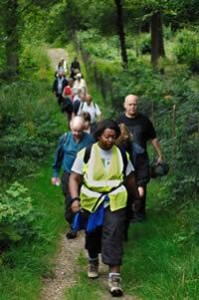
More evidence that low-calorie sweeteners are bad for your health
Studies show that artificial sweeteners can raise the risk of hypertension, metabolic syndrome, type 2 diabetes and heart disease, including stroke.

Natural Health News — They are common suggestions to remedy stress: You just need a breath of fresh air. Walk it off. Get out and see people. Turns out all those things combined may in fact make you feel better – a lot better – a new large scale study suggests.
Group nature walks are linked with significantly lower depression, less perceived stress and enhanced mental health and well-being, according to a new study conducted by the University of Michigan, with partners from De Montfort University, James Hutton Institute, and Edge Hill University in the United Kingdom.
The findings appear in a special issue of of Ecopsychology devoted to the issue of ‘Ecopsychology and Public Health’.
People who had recently experienced stressful life events like a serious illness, death of a loved one, marital separation or unemployment especially seemed to see a mood boost after outdoor group walks.
“We hear people say they feel better after a walk or going outside but there haven’t been many studies of this large size to support the conclusion that these behaviours actually improve your mental health and well-being,” says senior author Sara Warber, MD, associate professor of family medicine at the U-M Medical School and member of the Institute for Healthcare Policy and Innovation.
“Walking is an inexpensive, low risk and accessible form of exercise and it turns out that combined with nature and group settings, it may be a very powerful, under-utilized stress buster. Our findings suggest that something as simple as joining an outdoor walking group may not only improve someone’s daily positive emotions but may also contribute a non-pharmacological approach to serious conditions like depression.”
Researchers evaluated 1,991 participants from the Walking for Health programme in England, which helps facilitate nearly 3,000 weekly walks and draws more than 70,000 regular walkers a year.
“Given the increase in mental ill health and physical inactivity in the developed world, we are constantly exploring new, accessible ways to help people improve their long term quality of life and well-being,” Warber says.
“Group walks in local natural environments may make a potentially important contribution to public health and be beneficial in helping people cope with stress and experience improved emotions.”

Please subscribe me to your newsletter mailing list. I have read the
privacy statement